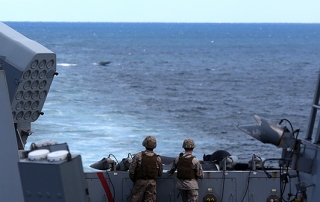What US policymakers can learn about Iran from the life and death of Rafsanjani
by Adam Weinstein
On the eve of Ayatollah Hashemi Rafsanjani’s death, he was no longer a hardliner. But he wasn’t a reformist either. Many Western newspapers described him as ‘Iran’s ex-president’ in their elegies of him but his legacy dwarfs that characterisation. US policymakers should study both his life and the reaction to his death to understand the complexities of the […]









